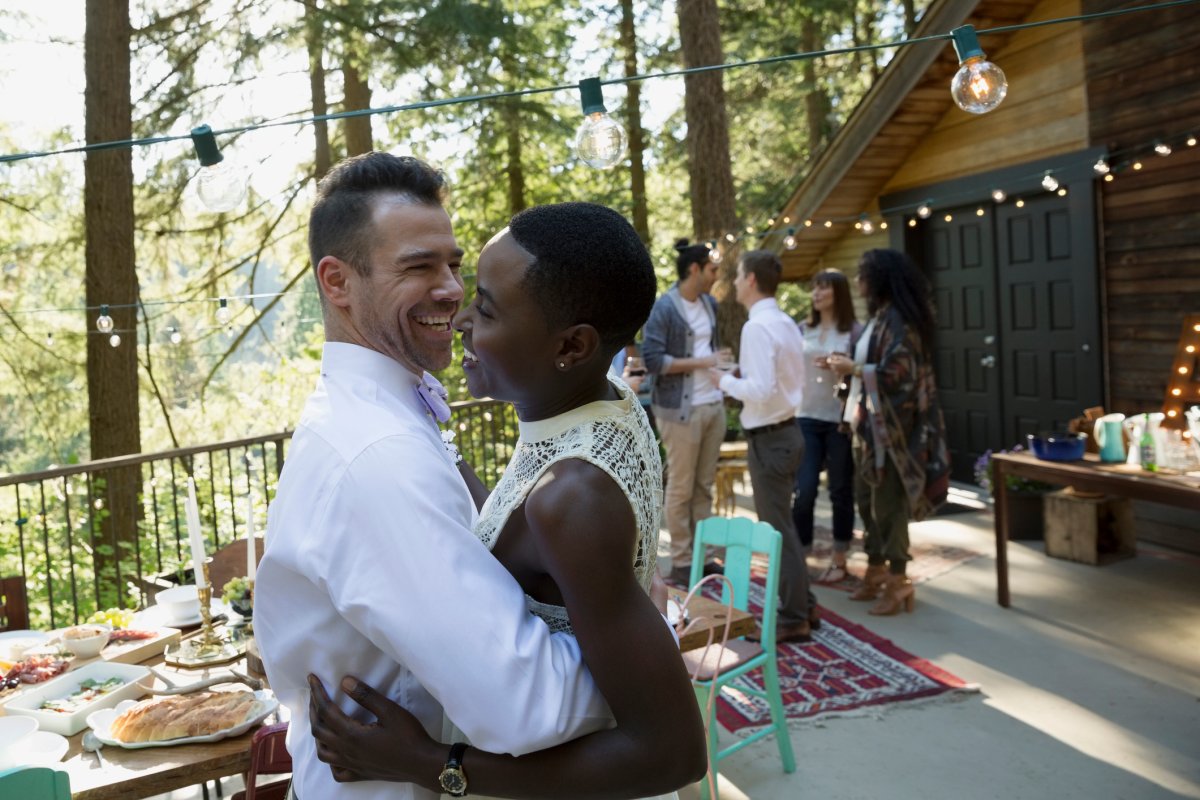It’s a billion-dollar industry and for many, a milestone, but a new poll suggests when it comes to saying “I do,” many Canadians are just not interested.

A recent poll by Angus Reid Institute found 53 per cent of Canadian adults felt marriage wasn’t necessary, while 47 per cent thought it was important for couples in long-term relationships to have legal marriages.
The poll, which surveyed 1,520 Canadians, found four in 10 adults were never married and were unsure if they wanted to.
“In general, Canadians favour treating marriages and common-law relationships identically when it comes to taxation and assets, with majorities saying those who legally marry should not get extra tax benefits (59 per cent say this) and that those in common-law relationships should divide assets equally when the relationship ends,” researchers said in a statement.
READ MORE: ‘Indian packages’ let more South Asians opt for destination weddings
How age plays a factor
And while these findings aren’t so surprising, it does give insight on how young Canadians, in particular, feel about marriage, says Toronto wedding planner Rebecca Chan.
- B.C. to ban drug use in all public places in major overhaul of decriminalization
- Posters promoting ‘Steal From Loblaws Day’ are circulating. How did we get here?
- 3 women diagnosed with HIV after ‘vampire facials’ at unlicensed U.S. spa
- Canadian food banks are on the brink: ‘This is not a sustainable situation’
Statistics Canada notes Canadians, in general, are waiting longer to get married, and in 2016, the census revealed 28.2 per cent of Canadians were living alone (the highest number in 150 years).
Chan says with the younger population in particular, many of their values around marriage comes down to how they view traditions.
“Millennials are pretty open-minded and aren’t tied to traditions,” Chan tells Global News. “Even older Canadians who have been married and are now in a new relationship… some don’t think it is worth it to do it again.”
The poll noted age also dictated if a marriage should be a civil ceremony or a religious one. “As Canadians adopt less traditional views on marriage, they also place less value on the institution’s historically religious component,” the researchers noted.
Common-law relationships
The poll also looked at how Canadians viewed married couples and common-law relationships. Statistics Canada notes married couples still represented the majority of couples in 2016, but common-law relationships were becoming more common in every province and territory. Data showed 21.1 per cent of Canadians were in common-law relationships, a number that has increased from 6.3 per cent in 1981.
READ MORE: These couples had $15,000, $35,000 and $85,000 weddings. What their big days looked like
The poll found 59 per cent of Canadians said couples who legally marry should not receive extra tax benefits unavailable to common-law couples, while another 58 per cent believed common-law relationships should be treated the same as marriages when it came to dividing assets.
In B.C., for example, common-law spouses are able to claim half of their partner’s assets if the relationship ends.
Avoiding the pressure of marriage
Chan says some of these ideas around not getting married are also rooted in finances. The poll suggests women, in particular, are more able to be financially independent and don’t need to rely on a dual income, while young people may not have the funds to have a ceremony in the first place.
“You don’t need to feel pressure to hold the same kind of wedding everyone else is holding,” she says. “Weddings are meant to be special and personalized.”
An Ipsos poll for Global News found Canadians were spending an average of $8,937 on their wedding in 2017, but it is well-documented others on average spend anywhere from $30,000 to $100,000.
READ MORE: Meghan Markle won’t have a maid of honour, and more juicy royal wedding details
Chan says along with the cost (which really doesn’t have to be this high), people also feel pressured via social media to have an extravagant wedding. She says to work around costs, she is seeing a lot more trends in intimate weddings, destination weddings, and even eloping.
“A new trend is pop-up weddings where venues allow a number of couples to come and get married,” she adds. “I don’t think anyone needs to have a giant wedding… there are just expectations as well as people who don’t abide by it.”
















Comments